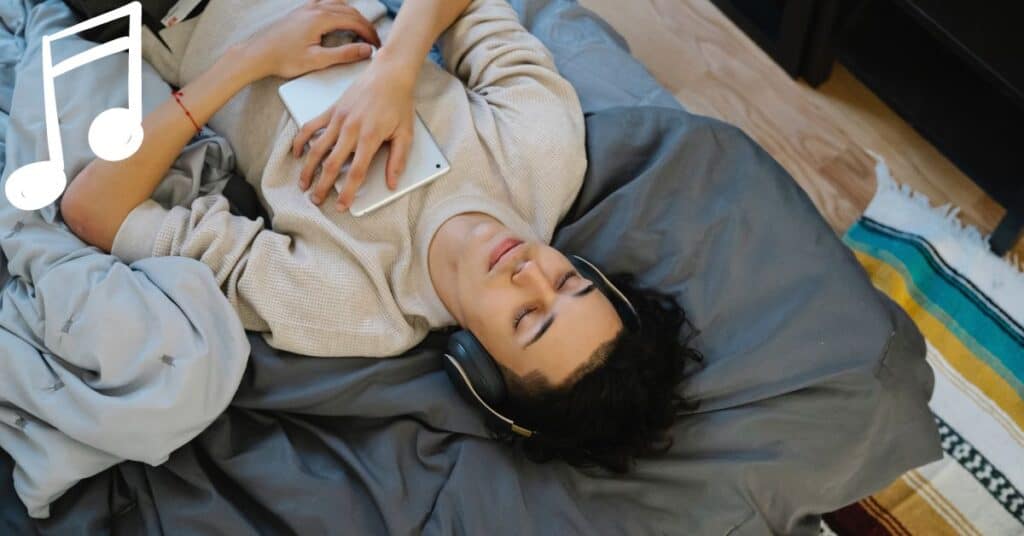Why does listening to Music affect our sleeping when dreaming?We all dream at one time to another. We all need to understand if listening to Music affects our dream.
When listening to Music, we like to drift off into other worlds.
I am linking you to this awesome article of mine:What Kind Of Music Buddhists Listen To?{Answered}I spend over 2hrs writing it
But why do some sounds immerse us far more profoundly than others? Johanna Hoock looked at a study at the Free University.
In the morning, barely out of bed and sleeping still in your eyes, into the overcrowded U3, and looking in vain for a seat – anyone studying at the Free University knows this scenario.
Only one thing can make the arduous journey toward Krumme Lanka more bearable: Music. So up with the headphones and beaming out of the cramped subway reality.
If you were to ask students when they arrived in Dahlem-Dorf what was the last thing they thought of, most of them would probably not remember. And why is that?
When listening to Music, many people tend to daydream. A psychological study at the FU recently found that there is even a demonstrable connection between the type of Music heard and the content of the thoughts.
We Dream Most Of The Day
As early as 2014, the researchers dealt with the effect of Music on emotions.
Now the impact on the content of the thought world has been explored. “We spend between thirty and fifty percent of our waking hours daydreaming,” explains music researcher Dr. Liila Taruffi, who led the investigations at the FU
. “This means our thoughts are not focused on a specific external stimulus or activity.
” These are internal, spontaneous thoughts in the form of literal speech, a word, or a visual appearance, such as a painting.
The Music Style Makes The Difference
It is noteworthy here that sad Music stimulates daydreaming more than, for example, happy sounds. Melancholy melodies encourage self-reflection and self-reflection.
The type of Music that falls into this category was previously determined in a separate experiment with other subjects.
The scientists selected the songs from a list of genres that evoked strong emotions. The study participants were asked to describe what they thought of while listening.
With sad Music, people associate the emotional life and elements of nature, such as “water” and “love.” “Dancing and partying predominated with cheerful music,” explains Taruffi.
In the second step of the experiment, measurements of the brain regions make it clear that sad Music stimulates the so-called “default mode network” – precisely the area that is also active during daydreams.
The research results could be an impetus for further investigations, for example, to stimulate positive thoughts with the right Music, depending on the personality type
. According to Taruffi, such approaches could be used, for example, to develop new forms of therapy for the treatment of depression or similar mental illnesses.
Let me link you to another article: Sight Reading: What It Is And How To Get Started.{Answered}

